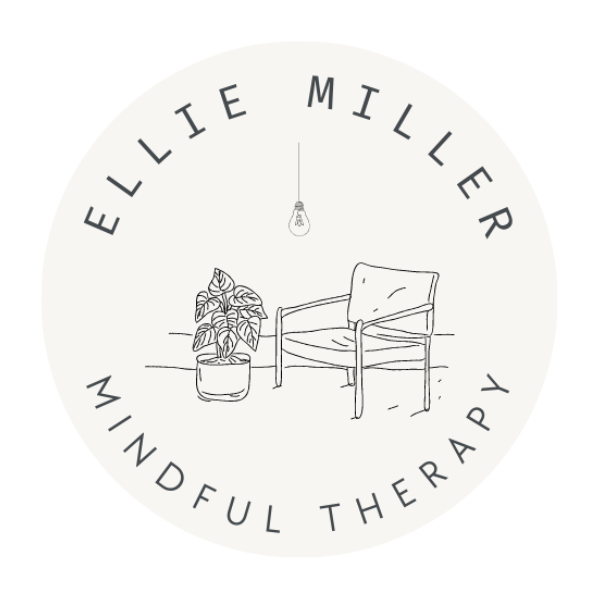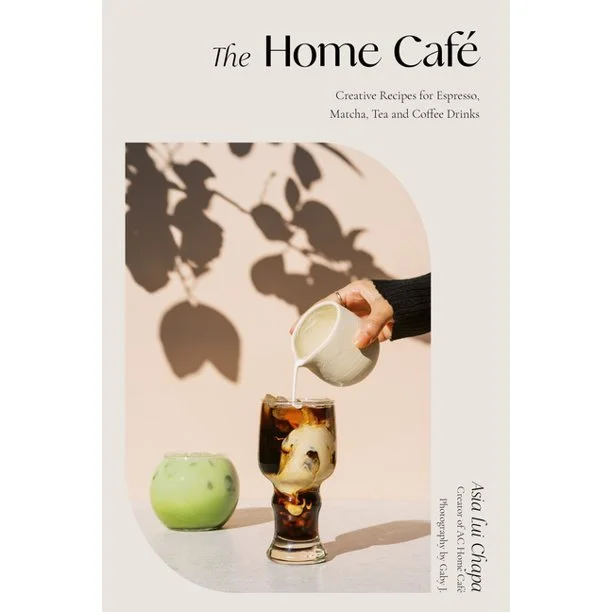Finding Balance: How to Enjoy Coffee While Managing Anxiety
For many of us, the aroma of freshly brewed coffee brings a sense of comfort and familiarity. However, if you struggle with anxiety, you may have found that coffee can sometimes ramp up feelings of unease.
The relationship between coffee and anxiety is complex, influenced by various factors such as caffeine content, individual sensitivity, and the ritualistic aspects of coffee consumption.
In this article, we will explore:
the effects of coffee on anxiety
strategies to set track effects and set realistic limits
how to keep the benefits of the cozy coffee ritual with less of the jitteriness
alternative beverage ideas
Understanding the Connection between Coffee and Anxiety
Coffee contains caffeine (shocker!) which is a natural stimulant that can affect the central nervous system and potentially amp up those anxiety symptoms. While some folks may be more sensitive to its effects, others may not experience any noticeable impact on their anxiety levels (jealous.)
Effects of Caffeine on Anxiety Levels
If you struggle with anxiety, you are probably already aware of the relationship between caffeine and anxiety levels from first hand experience. Just to help validate your experience, know that research backs this up.
Research suggests that caffeine stimulates the release of stress hormones like cortisol and adrenaline, leading to increased heart rate, restlessness, and agitation (Smith, 2002). These physiological responses can heighten anxiety symptoms in individuals who are already prone to anxiety disorders (Juliano & Griffiths, 2004).
Setting Limits and Listening to Your Body
Setting limits on coffee consumption can help manage anxiety symptoms. Start by paying attention to how your body responds to different amounts of caffeine. Gradually reduce your intake or consider switching to decaffeinated options. Experiment with tracking the effects of caffeine on your anxiety levels and adjust accordingly.
Setting limits doesn’t have to be all or nothing. Maybe you find that cutting out that second (or third, fourth, fifth…) coffee of the day does the trick for you. Or maybe you can switch your two daily coffees each to 1/2 caff. Play around with it!
Track the effects of different caffeine types/amounts on your anxiety levels
Be mindful of the amount of caffeine that works for your body
Experiment with reduced caffeine; cutting down on coffee, drinking half caff, reduced caffeine teas, etc.
How to Track The Effects of Caffeine on Your Anxiety Levels
Keep a Journal
Start by keeping a journal where you record your daily caffeine intake and anxiety levels. Note down the type and amount of caffeine consumed, the time of consumption, and any specific anxiety symptoms you experience throughout the day.
Rate Anxiety Levels
Use a scale of 1 to 10 to rate the intensity of your anxiety symptoms at different points during the day. Consider factors such as restlessness, racing thoughts, palpitations, irritability, or any other symptoms you typically experience.
Note the Source of Caffeine
Identify the specific sources of caffeine you consume, such as coffee, tea, energy drinks, or chocolate. Different sources may contain varying amounts of caffeine, so it's essential to track them separately.
Observe Timing
Pay attention to when you consume caffeine and how it aligns with the onset and duration of your anxiety symptoms. Note if there are specific patterns or time intervals between caffeine consumption and anxiety flare-ups.
Consider Quantity
Track the amount of caffeine consumed in milligrams (mg). This information can be found on product labels or through online sources. Be mindful of hidden sources of caffeine, such as certain medications or supplements.
Monitor Sleep Patterns
Take note of your sleep quality and any changes in your sleep patterns. Caffeine consumption, especially later in the day, can interfere with sleep and contribute to anxiety symptoms the next day.
Assess Overall Well-being
In addition to anxiety symptoms, evaluate your overall well-being and mood. Look for patterns or correlations between caffeine intake and changes in mood, energy levels, or overall feelings of calmness.
Experiment with Reduction
If you suspect that caffeine is increasing your anxiety, consider gradually reducing your caffeine intake. Use your journal to track any changes in anxiety symptoms as you decrease your caffeine consumption too!
The Importance of the Coffee Drinking Ritual
You’ll notice that in this post I’m not necessarily encouraging you to flat out give coffee up altogether. And that’s because, I get it, coffee is more than just a beverage; it's a ritual that many people find comfort and enjoyment in. The process of brewing a fresh cup, inhaling the aroma, and savoring the first sip can bring a sense of calm and familiarity to our mornings or throughout the day. The ritual of coffee drinking often serves as a time for self-reflection, relaxation, and even social connection.
Even if you find that regular coffee consumption isn't ideal for managing your anxiety, it doesn't mean you have to give up the ritual altogether. You can still create a meaningful coffee-drinking experience by exploring alternatives and adapting the ritual to suit your needs.
Alternative Beverages for Anxiety-Prone Folks
If you find that coffee consistently triggers or worsens your anxiety symptoms, there are alternative beverages that can still provide comfort and enjoyment without the same effects. Here are a few ideas:
Generally speaking, you may want to try out herbal teas, or teas/coffees with decreased levels of caffeine. Here are a few options to consider:
Matcha Latte
Enjoy a vibrant and energizing matcha latte made with powdered green tea, steamed milk (or plant-based milk), and a touch of sweetness if desired.
Turmeric Latte (golden milk)
Indulge in a warming and soothing turmeric latte made with turmeric, ginger, cinnamon, black pepper, a sweetener of your choice, and milk (or plant-based milk).
Chamomile Lavender Latte
Savor a calming and floral chamomile lavender latte infused with dried chamomile flowers, dried lavender buds, honey or a sweetener, and steamed milk (or plant-based milk).
Rooibos Latte
Delight in a caffeine-free rooibos latte made with steeped rooibos tea, a touch of honey or a sweetener, and milk (or plant-based milk) for a creamy and comforting treat.
Peppermint Mocha Latte
Try a refreshing and minty peppermint mocha latte by combining brewed peppermint tea, cocoa powder or chocolate syrup, a sweetener, and steamed milk (or plant-based milk).
Gingerbread Latte
Embrace the cozy flavors of gingerbread with a spiced gingerbread latte made with gingerbread tea, gingerbread syrup or spices, a sweetener, and milk (or plant-based milk).
Lavender Honey Latte
Indulge in a fragrant and sweet lavender honey latte made with dried lavender flowers, honey or a sweetener, and steamed milk (or plant-based milk).
Decaf Chai Latte
Enjoy the rich and aromatic flavors of a classic chai latte made with black tea, a blend of spices (such as cinnamon, cardamom, cloves, and ginger), a sweetener, and milk (or plant-based milk).
🔥 Hot Tip
Check out The Home Cafe for more tasty drink ideas. Feel free to sub regular coffee for decaf when needed or try one of the many herbal tea based drink recipes!
Tell me About Matcha, Does Matcha Help Ease Anxiety?
Matcha, a powdered green tea, contains L-theanine, an amino acid known to promote relaxation and reduce stress. The combination of L-theanine and a small amount of caffeine in matcha can have calming effects on the mind without causing drowsiness. Many individuals find that matcha provides a sense of alertness and mental clarity while simultaneously inducing a state of calm.
It's important to note that the effects of matcha may vary from person to person. Some individuals may experience greater benefits in managing anxiety symptoms with matcha, while others may not notice a significant impact.
Check out this book to learn more and play around with some matcha recipes!
May you be free from the jitters!
Managing anxiety while still enjoying coffee is possible with awareness, moderation, and exploration of alternative beverages. Understanding the effects of caffeine on anxiety levels, setting limits, and listening to your body's response are essential.
Also, incorporating alternative options like matcha lattes, golden milk lattes, and decaf tea lattes can provide comfort and enjoyment without triggering anxious feelings. Remember, if it feels like you need some support in managing anxiety reach out for extra support!
Sources
Smith, A. (2002). Caffeine, anxiety, and sleep disorders: a review. Critical reviews in food science and nutrition, 42(5), 655-666.
Juliano, L. M., & Griffiths, R. R. (2004). A critical review of caffeine withdrawal: empirical validation of symptoms and signs, incidence, severity, and associated features. Psychopharmacology, 176(1), 1-29.
Siamwala, J. H., Dias, P. M., Majumder, S., Joshi, M. K., Sinkar, V. P., Banerjee, G., ... & Chattaraj, S. (2013). L-theanine promotes nitric oxide production in endothelial cells through eNOS phosphorylation. Journal of nutritional biochemistry, 24(3), 595-605.
Kulkarni, S. K., Bhutani, M. K., & Bishnoi, M. (2008). Antidepressant activity of curcumin: involvement of serotonin and dopamine system. Psychopharmacology, 201(3), 435-442.
baltimore therapy for couples and women with anxiety
Hi! I’m Ellie, a Baltimore based private practice therapist offering online therapy to empathetic women & couples in Maryland. I help women manage anxiety & stress and couples strengthen their relationships.
If you want more anxiety tools and tips from my private practice, straight to your inbox, I’d love to have you join The Detangler, my weekly lighthearted newsletter. If you live in Maryland or Virginia, reach out to see if we’re a good fit for therapy!











